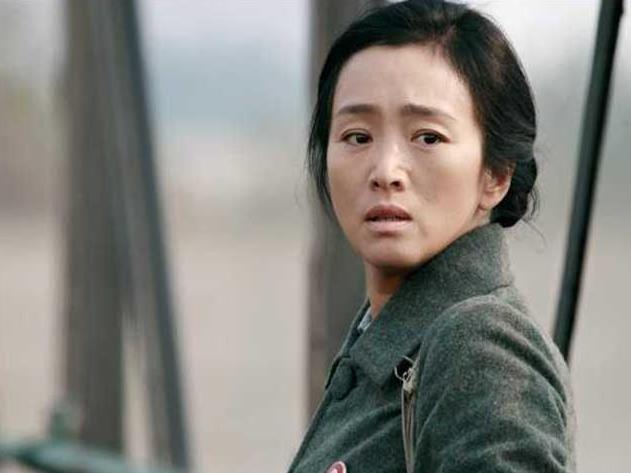Image: supplied
Reunions form the fabric of Coming Home (Gui lai), people trouncing the conspiring forces of time to come together after too long apart. On screen, it is a married couple separated by ideology and government. Off screen, it is an acclaimed auteur and his first and most frequent leading lady.
Within the film’s narrative, Lu Yanshi (Chen Daoming, Back to 1942) and Feng Wanyu (Gong Li, Shanghai) have spent decades separated courtesy of China’s Cultural Revolution. A professor, he was condemned as an intellectual and set to a labour reform camp, while she stayed behind, towed the party line and raised their daughter, Dandan (debutant Huiwen Zhang). Their first reunification attempt comes via Lu’s jailbreak but is thwarted by Yu’s fear of repercussions – and the now teen-aged Dandan’s dutiful intervention. When he is finally released three years later, another hurdle stands in their way: her selectively amnesiac memory, and his inability to convince her that he is her beloved husband.
Of course, within the feature’s faithful period production and amidst its warmly grey colour scheme, it is director Zhang Yimou and actress Li who find each other’s company once again. After highly acclaimed pairings on Red Sorghum, Raise the Red Lantern and five more efforts, they re-team for what represents the highest-profile work for both since their last collaboration on 2006’s Curse of the Golden Flower. The two remain in fine form, the filmmaker still thoughtful in his handling of emotion, and the star showing grace in a mature role. There may be more overt melodrama and affectation in the fruits of their latest reconciliation, as underscored by a too-eager piano track, but there is also ample elegance in its story of compassion and compromise.
As the four figures come back together, circling around obstacles and issues, sentiment swells – and that’s exactly where the feature’s focus sits. Coming Home unsuccessfully tries to filter its amorous leanings through its political commentary, and though the latter initially monopolises the plot and proves more interesting, the former’s increasing dominance robs it of all but the most obvious observations. Dandan’s sidenote of a story, first dancing dressed as a soldier and brandishing a rifle in a communist-approved performance, then abandoning her dreams for factory work, provides the best manifestation of a statement on the lasting impact once the regime is over. Lu’s plight, as superbly enacted by the earnest and affecting Daoming as it is, is robbed of its potency – though not its poignancy – by surrendering to the romantic. Yu’s failed remembrances are heavy-handed in their symbolism of the nation’s own troubling recollections.
In keeping with the recurrent theme, Coming Home was originally titled Return during its early production phase, and yet another repeat outing also marks its existence. Here, courtesy of screenwriter Zou Jingzhi (The Grandmaster), Yimou adapts his second book in succession – this time, The Criminal Lu Yanshi – by novelist Geling Yan. There is comfort in the filmmaker’s rendering of the material that helps transcend the feature’s easy maudlin mood and simple characterisations, just as there is consolation in his own return to tales of the tragic – though not as convincingly dramatic – kind. The results are fittingly imperfect even in their neat adherence to the constraints of the conventional historical weepie that comprises this ultimate reunion; perhaps the audience, like the protagonists, are being counselled to find slivers of solace where they can.
Rating: 3 stars out of 5
Coming Home (Gui lai)
Director: Zhang Yimou
China, 2014, 109 mins
Brisbane Asia Pacific Film Festival
http://brisbaneasiapacificfilmfestival.com/
29 November – 14 December
Actors:
Director:
Format:
Country:
Release:





